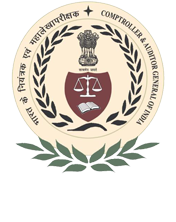Audit Reports

Uttarakhand
Report of 2010 - Performance Audit on Civil of Government of Uttarakhand
Overview
This Report includes five chapters with four performance reviews, a Chief Controlling Officer (CCO) based performance audit and 28 other paragraphs (including one general paragraph) dealing with results of audit of selected schemes, programmes and the financial transactions of the Government and its commercial and trading activities.Copies of the performance reviews and paragraphs were sent to the Commissioners/Secretaries of the departments concerned by the Principal Accountant General for furnishing replies within six weeks. Replies were received in respect of four audit paragraphs only. Wherever received and appropriate, the departmental views and explanations have been incorporated in this Report.
A scheme 'Calamity Relief Fund (CRF)' was conceived on the recommendations of the Ninth Finance Commission (January 1991) to build a safe and disaster resilient India by developing a holistic, proactive, multi-disaster oriented and technology driven strategy through a culture of prevention, mitigation, preparedness and response. The State of Uttarakhand received RS 499.43 crore (Central share: RS 376.34 crore and State share: RS 123.09 crore) in the CRF, against which RS 472.21 crore was spent over the period 2005-10. The performance audit of Disaster Management showed State Government's lackadaisical approach and lack of commitment in implementation of important aspects of disaster prevention, mitigation and preparedness. State Government, in the wake of Disaster Management Act, 2005, had yet to frame the guidelines, policies and rules. The State Disaster Management Authority was virtually non-functional since its inception.
The State Government failed to ensure incorporation of disaster prevention into the development process of the State as envisaged in the Act. In the absence of critical infrastructure such as trauma centres, the affected population could not be given immediate medical attention, depriving them of the basic medical facility. Assessment of structural and non-structural safety of school buildings and identification of necessary mitigative action was not included in the school safety programme, leaving 39 per cent of school buildings unattended. Reliable communication system was inadequate as it was seen that the delay in sharing of disaster information ranged from one to more than 24 hours. Despite incurring an expenditure of RS 22.55 crore, construction works were incomplete for want of release of second installment. Also, restoration works taken up under the CRF scheme were delayed by one to two years since the occurrence of disaster. RS 41.77 crore was sanctioned from CRF on inadmissible construction works in violation of norms of the scheme. In the absence of Rehabilitation & Resettlement policy, 80 identified villages of selected districts could not be rehabilitated.

